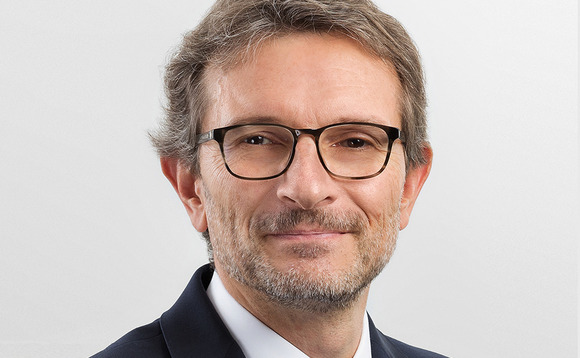
GP Profile: Cerea Partenaire

- Three-pronged offering: Mezzanine, Capital and Debt
- Cerea Dette II due to announce first close in February
- Cerea Capital II raised €225m in 2017 and is 60% deployed across eight deals
Cerea Partenaire held a €225m final close for its second buyout fund in 2017 and is due to hold a first close for its second private debt vehicle in March. The French food and beverage specialist talks to Unquote about its approach to investment
Cerea Partenaire's funds are sponsored by Unigrains – which has been dedicated to food and agriculture investing for 55 years. Since inception in 2004 with the launch of its mezzanine offering, Cerea funds have remained focused on the agricultural business and related sectors, with 40% of its deals today purely in food and beverage companies, says Cerea president Michel Chabanel. The remaining 60% spans the food and beverage value chain, including equipment, packaging and logistics.
Chabanel says the firm prides itself in straddling the worlds of both trade buyer – with the knowledge and niche status that comes with that – and the sophistication of being a financial investor.
Cerea has branched out from its original mezzanine mandate over the years to include a buyout wing, set up in 2007, and a private debt arm, which launched in 2015.
Two out of the three arms – mezzanine, buyout and debt – can work together across individual deals. This was the case for Cerea's acquisition of Organic Alliance accompanied by unitranche financing and Monviso, which was accompanied by mezzaning financing.
There have been two buyout funds to date. Cerea Capital I closed in 2007 on €130m and is fully invested, with nine out of the 13 portfolio companies already divested and with 150% money returned to date. Cerea Capital II raised €225m in 2017 and is 60% deployed across eight deals (Cerelia, GPS, Krampouz, La Comtoise, Monviso, Organic Alliance, Store Novation and Carambar&Co). Meanwhile, the firm completed three exits in 2017: it sold Breteche to IK; Buffalo Grill after 10 years to TDR, and Ipackchem to Sagard.

The EVs of Cerea buyout deals range from €40-200m, with the firm stumping up an average of €20m per ticket. Geographically, 90% of deals are in France, though activity is becoming increasingly international, with one deal from Fund II completed in the UK (Ipackchem) and one in Italy (Monviso) to date.
Co-investment
Cerea has an LP base consisting entirely of institutional investors. A rough pool of 25 are all keen on co-investment but are all different in their approach, according to Chabanel. He adds that more than half of its buyout deals to date have co-investors involved. In addition to its role as sponsor, Unigrains is also a regular co-investor.
"Everyone is keen [on co-investment] and we have a lot of opportunities, but we need partners to review the investment alongside us and be ready to invest on day one," says Chabanel, adding that co-investment tickets vary and have been as high as €30m.
Credit
Mezzanine remains at the heart of Cerea and the GP is on its third dedicated fund. Fund I was raised in 2004, closed on €105m and was deployed across 20 companies. Fund II was raised in 2009, closed on €127m and was deployed over more than 20 companies. Fund III closed in 2016 on €200m and is 25% invested to date.

"Mezzanine has always been popular in France, partly because it has been a market leader in the segment with a lot of history," says Chabanel. "The law in France is also very protective of subordinated lenders and therefore there is good risk/reward ratio [compared with other jurisdictions]." Chabanel adds that, thanks to the selection process of its investment teams, out of the 46 mezzanine deals Cerea has done, it has only lost 2.3% of money invested.
And it is not just Cerea that is pitching for mezzanine business. Despite the onset of direct lenders, Chabanel says that, rather than this new breed of lender muscling in on the market, it is the French banks.
"Unitranche packages have captured part of the larger market in which mezzanine providers have historically operated. Nonetheless, mezzanine products have remained competitive, and are used more frequently on smaller deals," says Chabanel, adding that Cerea saw a gap in the market to provide mezzanine for smaller deals as banks were not doing it.
However, outside France, private debt is flourishing, especially senior debt in Germany. Cerea's private debt branch – which offers senior debt, private placements and unitranche – is on its second fund. The first raised €268m in 2015 and is almost fully invested across 30 deals. Fund II is due to announce a first close in March ahead of a final close on its €300m target.
While the mezzanine arm offers €10-20m tickets in companies with an EV of €30-400m, the senior debt wing offers €10-20m tickets in companies with an EV of €30-500m.
Key People
• Michel Chabanel, CEO, joined the firm in 2011, leaving his role as managing partner at Pragma Capital after eight years. He served as president and administrator of Afic from 2014-2016.
Latest News
Stonehage Fleming raises USD 130m for largest fund to date, eyes 2024 programme
Multi-family office has seen strong appetite, with investor base growing since 2016 to more than 90 family offices, Meiping Yap told Unquote
Permira to take Ergomed private for GBP 703m
Sponsor deploys Permira VIII to ride new wave of take-privates; Blackstone commits GBP 200m in financing for UK-based CRO
Partners Group to release IMs for Civica sale in mid-September
Sponsor acquired the public software group in July 2017 via the same-year vintage Partners Group Global Value 2017
Change of mind: Sponsors take to de-listing their own assets
EQT and Cinven seen as bellweather for funds to reassess options for listed assets trading underwater








